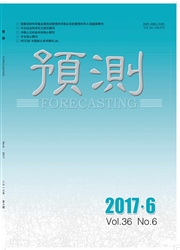

 中文摘要:
中文摘要:
会计稳健性对会计信息决策有用性的潜在损害使其在准则制定与执行中饱受争议。本文实证探讨稳健性对会计信息决策有用性与市场定价的影响,研究发现:稳健性显著降低盈余持续性但不影响盈余反应系数,表明稳健性在中国市场损害了会计信息的决策有用性,但不影响市场定价。基于前人研究,本文认为投资者权衡了稳健性降低公司内外部信息不对称的积极效应和稳健性降低会计信息决策有用性的消极效应,在对盈余信息定价时未受公司会计稳健性的影响,导致稳健性不影响盈余反应系数。本文对大资金交易活动的分析进一步验证了这种猜想。本文结果为中国会计准则制定者在强调会计信息决策有用性的同时保留稳健性作为会计信息质量的辅助要求提供了实证依据。
 英文摘要:
英文摘要:
The potential adverse impact of conservatism on the usefulness of accounting information for decision making makes the principle of conservatism being disputed among standard setters and practitioners. This paper empirically examines the influence of conservatism on decision usefulness and market pricing of accounting information. We find that conservatism significantly reduces earnings persistence but has no impact on earnings response coefficient (ERC) , which implies that conservatism reduces decision usefulness but has no impact on the pricing of accounting information in Chinese market. Based on prior research, we conjecture that this neutral effect of conservatism on ERC is due to inves- tors tradeoff between the positive effect of conservatism on information asymmetry and the negative effect of conservatism on decision usefulness of accounting information, hence, investors are not influenced by conservatism when pricing firms' earnings. Our conjecture is further confirmed by analyzing behaviors of market large trades. The results of this paper provide empirical basis for standard setters to put emphasis on the decision usefulness of accounting information and meanwhile retain conservatism as a supplementary requirement for accounting information quality.
 同期刊论文项目
同期刊论文项目
 同项目期刊论文
同项目期刊论文
 期刊信息
期刊信息
